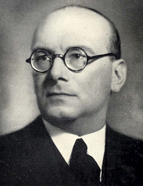

M. Goris, another Belgian historian, was also mentioned many times. Sharing Jaime Cortesão's perspective, in the "solidarity existing between the action of the Portuguese economy aimed at dominating the strait and the cities of Flanders", he made sure to acknowledge him (Idem, 2004, p. 51). Others, cultists of a "short-sighted history", were only implicitly so. Because it distanced itself from them, especially with regard to the effects of the so-called "transport policy" on national production.
In 1937, by the time Veiga Simões was already representing Portugal's interests in Berlin, the organisers of the First Congress on the History of Portuguese Expansion in the World decided that he should not be excluded from the initiative. Nor should his reflections. This invitation resulted in two very important studies: “Portugal, o ouro, as descobertas e a criação do Estado capitalista” [Portugal, gold, discoveries and the creation of the capitalist state] and “O Infante D. Henrique – o seu tempo e a sua acção” [Prince Henrique the Navigator — his time and action]. Although the first title was published after the second, it was written before. So, it makes sense that the order presented is this one and not the order in which each one was published. The five years between the conference in Brussels and the current challenge allowed Veiga Simões to refine ideas he had started to embrace, to develop theses that had previously only been touched upon, and to offer new interpretations of old questions. Firstly, with regard to the territorial definition of the Portucalense kingdom. It can no longer be understood within a confined geographical framework, but only when analysed in a broader European context. "Portugal is thus the outcome of two simultaneous factors, one specific to the Iberian Peninsula and the other more general: 1) the break-up of the Leonese empire into the five peninsular kingdoms; 2) the reopening of long-distance trade by the crusades, which gave it a foothold in economic activity and moulded its political guidelines" (Portugal …, 2004, p. 87). The last two centuries of the Middle Ages in Europe were marked by the "lust for gold". The Muslim advance had led to a loss of contact with the gold regions of central Africa. European production was short of demand. In the last third of the 14th century, the economic depression that had hit the old continent was spreading to Portugal. Just as the society of Avis was being formed here. "Thus, the Portuguese problem at the beginning of the 15th century had three aspects: lack of income for the nobility due to the narrowness of the lands and the impossibility of making them produce more; lack of territory in which the neo-feudal spirit of this nobility could expand; and, above all, the predominance of the cities in which the king had logically supported the economic and social life of the kingdom; the absence of a monetary instrument for exchange at a distance, capable of revitalising the economy by its influx, alleviating the depression in which it was suffocating, and restoring the economic forces needed to overcome the crisis." (Idem …, 2004, pp. 96 e 97). The political and economic actions of King João I's government had been dealt with by highlighting figures. History had to be depersonalised. Our history.
This work is financed by national funds through FCT - Foundation for Science and Technology, I.P, in the scope of the projects UIDB/04311/2020 and UIDP/04311/2020.
